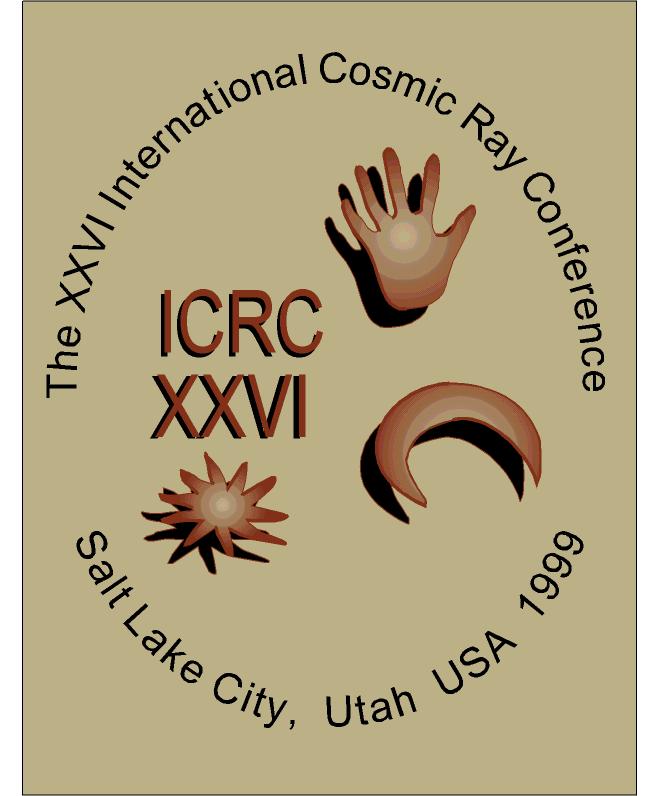
It is with great sadness that we must announce the passing of Professor John A. Simpson of the University of Chicago. Professor Simpson who was a pioneer in the field of cosmic-ray research died on August 31, 2000 from complications after heart surgery. We will publish a complete obituary as soon as possible.
Information about Professor Simpson's life and career is available:
http://ulysses.uchicago.edu/simpson
Item Entered September 19, 2000
This 12th Course of the International School of Cosmic Ray Astrophysics, combined with The International School of Particle Astrophysics, will be offered 11 - 21 November 2000 at the Ettore Majorana Centre in Erice, Sicily, Italy. This course has been selected by NATO as an Advanced Study Institute under the direction of John P. Wefel and Vladimir S. Ptuskin.
Topics include Supernovae, Supernova Remnants, Particle Acceleration, Gamma Ray Bursts, High Energy Interactions, GeV-TeV gamma rays, Air Showers, Structure of the Universe, Solar Neutrinos, Cosmic Ray Spectrum, Black Holes, X-rays, Soft Repeaters, AGN, Dark Matter, Neutrino Mass, Pulsars, GZK Cut-Off, Cosmological Constant, Isotopes in Cosmic Rays, String Theory, New Telescopes, Science and Technology in the New Millennium. Lecturers include* Berezhko (Yakutsk), Biermann (Bonn), Bykov (Russia), Cowsik (India), Davis (BNL), Fonseca (Spain), Galeotti (Italy), Giller (Poland), Sanchez (France), Scarsi (Italy), Seitz (New York), Stanev (Bartol), Trumper (Garching), Turtelli (Brazil), Wolfendale (Durham)
*Not all are confirmed.
Scientists, postdoctoral researchers and advanced graduate students interested in attending should contact
Prof. John. P. Wefel
([email protected])
Department of Physics and Astronomy
Louisiana State University
Baton Rouge, LA 70803 USA
Phone 1-225-388-8696
fax 1-225-388-1222
including a brief CV and, for students, the name of a senior scientist as nominator. Scholarships, usually limited to a portion of the living expenses, are available and must be requested/justified in the application. Applications are currently being accepted.
For further details see http//phacts.phys.lsu.edu/ISCRA/
-------------------------------------------------------------------------
Director of the School M. M. Shapiro
Co-Directors of the CourseJ. P. Wefel, V. Ptuskin, T. Stanev, P. Galeotti
Director of the Ettore Majorana Centre A. Zichichi
Item Entered July 4, 2000
Return to Table of ContentsThe 26th ICRC conference proceedings are now available online. You may
link to the
conference proceedings home page at:
http://krusty.physics.utah.edu/~icrc1999/proceedings.html
Note: The Invited/Rapportour volumes have been shipped and attendees should be receiving them now.
Item Updated June 27, 2000
 The 27th ICRC is scheduled for August 7 - 15, 2001 in
Hamburg, Germany. Their WEB page is now up and running at:
The 27th ICRC is scheduled for August 7 - 15, 2001 in
Hamburg, Germany. Their WEB page is now up and running at:
http://www.copernicus.org/icrc/
Item Entered September 19, 2000
In addition to the well-established and successful Shakti P Duggal award for young researchers, the 26th ICRC saw the first presentation of the newly established O'Ceallaigh medal and the announcement of one further award, the Yodh Prize.
The O'Ceallaigh medal is awarded by the Commission for "Distinguished Contributions to Cosmic Ray Research" and commemorates the late Professor Cormac O'Ceallaigh (1912-1996) who was head of the Cosmic Ray Section of the Dublin Institute for Advanced Studies from 1953 until 1984. As a young man he spent a year working in the laboratory of Pierre Auger in Paris, but his most productive period began when he worked in Cecil Powell's group in Bristol in the late forties. During this period he did important work on what would now be called Kaon and neutrino physics using the nuclear emulsion technique. His subsequent work was mainly on developments of the solid state track detector technique for determining the ultraheavy element abundances in the cosmic rays, work which is just now coming to fruition with results being reported by his former colleagues at Salt Lake City from the DIAS/Estec Ultra-heavy Cosmic Ray Experiment.
The Commission had a difficult task in deciding to whom to award the first O'Ceallaigh medal. It is clear that when an award like this is first instituted there will inevitably be a number of excellent candidates who would probably have received the award in earlier years had it existed. In this case two names rapidly emerged from those suggested as clear favourites, both in their own very different ways excellent canididates. The Commission eventually decided that the correct course of action was to award the 1999 medal jointly to John Simpson from Chicago and George Zatsepin from Moscow. Between them they have made seminal contributions to essentially all areas of Cosmic Ray Research, from the solar and Geomagnetic effects studied with Simpson's neutron monitors to the ultra-high energy and probably extragalactic particles seen beyond the Greissen-Zatsepin-Kuzmin cut-off. Each has been an inspiration to generations of students and colleagues and it is fitting that their contributions be recognised formally by the community to which they have given so much.
Luke O'C Drury <[email protected]> Tel. +353-1-6621333
School of Cosmic Physics, Fax +353-1-6621477
Dublin Institute for Advanced Studies,
5 Merrion Square, Dublin 2, Ireland.
Item Entered February 8, 2000